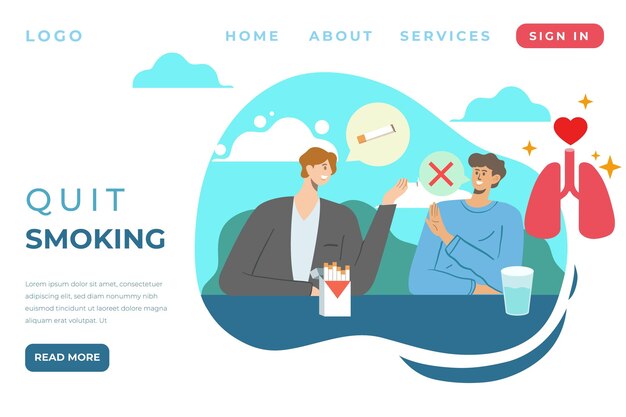
When your health insurance policy was initially drafted, there was a specific query about your tobacco consumption. If you affirmed that you were a smoker, your premium consequently increased. Contrarily, if you hadn’t used tobacco for more than a year and indicated this, your premium was slightly reduced.
The rationale behind this policy is pretty straightforward: Smokers are more prone to health issues and thus higher premiums assure an equilibrium in the insurance company’s risk. Yet, what happens if you truthfully claimed that you didn’t use tobacco at the time of the agreement, but embarked on smoking a year afterward?
The details of these scenarios are nestled within the small print of your health insurance policy, however, ordinarily, your premiums would remain the same. Generally, health insurance policies take into account your health status at the time of signing, not your current health — for more information check HBF. Given that you weren’t a smoker when you initiated the agreement, technically the insurance won’t consider your newfound smoking habit in determining your current premium or potential claims.
On the other hand, it’s been observed that a good number of individuals falsify their smoking habits on health insurance documents. A certain study revealed that two-thirds of individuals would lie on their health insurance paperwork to secure a better rate. Therefore, even if you were truthful about smoking during the policy inception, an insurance company may have reasons to question your honesty, especially in a claim related to a smoking-related ailment.
In cases where you contract lung cancer or similar illnesses typically induced by smoking, your underwriter might peruse your initial responses about your tobacco use. If it turns out you had observed that you were not a smoker, alarm bells could start to ring. Considering it’s the underwriter’s responsibility to thoroughly scrutinize claims and economize for the company, they might commence exploring grounds to reject your claim.
From the insurance company’s perspective, this is probably a sensible approach. It’s common knowledge that most people pick up the habit of smoking during their teen years and don’t just randomly start smoking later in life. Insurance companies are equally aware that numerous individuals provide dishonest information about their smoking practices on insurance forms. The question then is: Why should the insurer bear the cost of your claim now when the appropriate premium hasn’t been paid according to your risk category?
Despite your bluntness in the beginning, you can discern how damning your situation appears. How certain can you say you were not a smoker when signing the policy? Do you have a specific date when you picked up smoking?
Establishing a claim for an illness that you cannot directly link with your smoking habit becomes more daunting. Hence, although it’s true that, according to your insurance policy, new smokers’ claims shouldn’t be affected, don’t harbor the assumption that claiming will be a straightforward process when the insurance company discovers your smoking habits.


